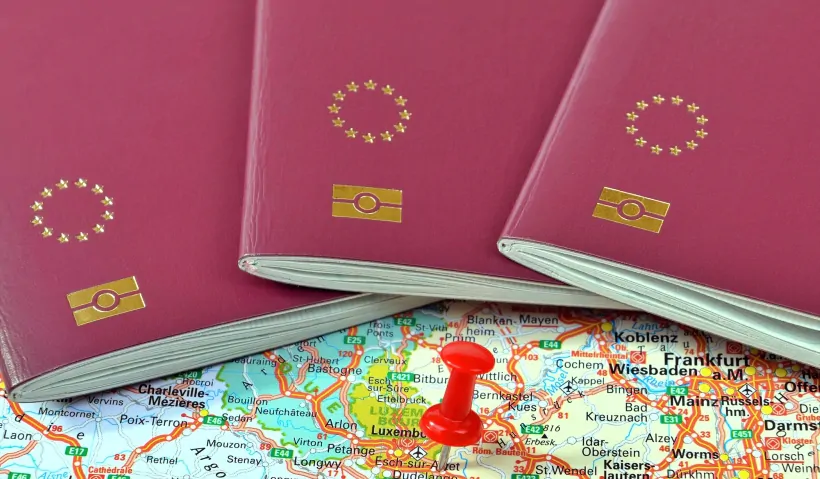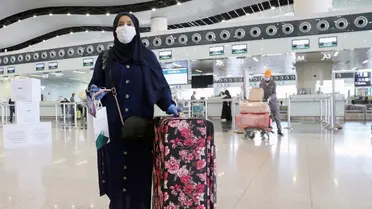Are you dreaming of exploring the vibrant streets of Istanbul or immersing yourself in Turkey’s rich cultural heritage? Planning a trip to this enchanting country is an exciting endeavor. However, before packing your bags and booking that flight, it’s crucial to understand the potential hurdles one might face when applying for a Turkish visa with a criminal record. In this insightful blog post, we delve deep into the impact of criminal records on Turkey visa applications, unraveling the intricacies and providing invaluable tips to ensure your dreams become reality. Don’t let past mistakes hold you back – join us as we navigate through this essential information and empower you to embark on your Turkish adventure hassle-free! TURKEY VISA WITH CRIMINAL RECORD
Introduction to the topic: Why is it important to understand the impact of criminal records on Turkey visa applications?
Introduction to the topic:
Traveling to Turkey can be an exciting and enriching experience. From its stunning landscapes, rich history, and vibrant culture, there is no shortage of reasons why people choose to visit this beautiful country. However, before packing your bags and booking your flight, it is crucial to understand the impact that criminal records can have on your Turkey visa application.
In recent years, Turkey has become a popular destination for tourists and business travelers alike. This increase in visitors has also led to stricter regulations when it comes to obtaining a visa. The Turkish government takes security very seriously, which is why they conduct thorough background checks on all visa applicants.
Why is it important to understand the impact of criminal records on Turkey visa applications?
1. Visa Denial:
The most significant impact of having a criminal record when applying for a Turkish visa is the potential denial of your application. The Turkish authorities have the right to reject any applicant with a criminal record or those who are considered as a threat to national security. TURKEY VISA APPLICATION
A criminal record could include anything from minor offenses such as traffic violations or more serious crimes like fraud or drug trafficking. Even if you were convicted many years ago or received a small fine for an offense, it may still show up on your record and affect your chances of getting a visa.
2. Impact on Future Travel Plans:
Having your visa denied due to a criminal record not only affects your immediate travel plans but also has long-term implications for future visitation opportunities in Turkey. Your details will
What is a criminal record and how does it affect visa applications?
A criminal record is a documented history of an individual’s interactions with the criminal justice system. This can include any arrests, convictions, or charges for criminal offenses. Depending on the severity and nature of the offense, a criminal record can have serious implications on various aspects of an individual’s life, including visa applications.
In the context of Turkey visa applications, having a criminal record can significantly impact the outcome of your application. The Turkish government considers applicants’ criminal records as part of their background check process to determine their eligibility for a visa.
The first step in understanding how a criminal record may affect your Turkey visa application is to understand what types of offenses are considered “criminal” in Turkey. In general, any violation that is punishable by imprisonment or fines under Turkish law is considered a criminal offense. This includes both minor offenses such as traffic violations and more serious crimes like theft or assault.
If you have a criminal record, it does not necessarily mean that your visa application will be automatically rejected. However, it may raise concerns for the Turkish authorities and could potentially lead to further scrutiny and delays in processing your application.
One important factor that determines whether your criminal record will affect your visa application is the type and severity of the offense committed. For example, minor traffic violations are unlikely to have much impact on your application compared to more serious crimes such as drug trafficking or fraud.
Furthermore, if you have been convicted or charged with multiple offenses in the past, this may also raise concerns for immigration officials about your character and
Overview of Turkey’s immigration laws and policies regarding criminal records
Turkey’s immigration laws and policies play a crucial role in determining the impact of criminal records on visa applications. As an applicant, it is important to have a clear understanding of these laws and policies to avoid any potential issues or delays in your visa application process.
Firstly, it is important to note that Turkey has strict immigration laws when it comes to individuals with criminal records. The country takes into account an individual’s criminal history before granting them entry into their borders. This is done to ensure the safety and security of its citizens and visitors.
One of the key factors that influence Turkey’s immigration policies towards individuals with criminal records is the severity of the offense committed. This means that if an applicant has been convicted for a serious crime such as murder, drug trafficking, or terrorism, they will most likely be denied entry into Turkey.
In addition, Turkey also considers the length of time since the conviction when evaluating an individual’s visa application. Generally, if an applicant has been convicted within the last five years, their chances of obtaining a visa may be significantly reduced. However, if more than five years have passed since the conviction and there have been no subsequent offenses, then their chances of getting a visa may improve.
Another crucial aspect to consider is whether or not an individual poses a threat to national security or public order in Turkey. If this is deemed to be true based on their criminal record, they may be denied entry into the country.
Moreover, individuals with previous deportation orders from Turkey will face additional scrutiny when



